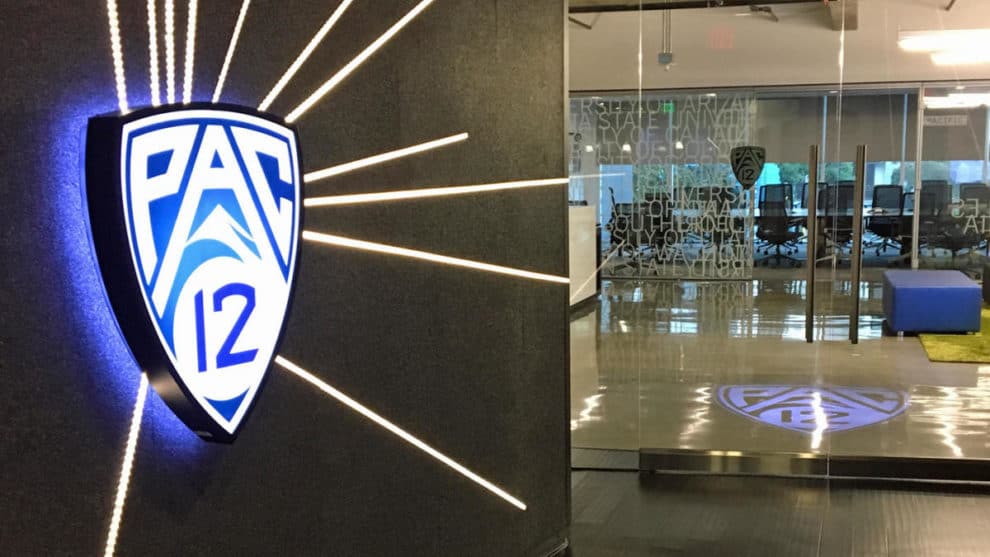
- The Pac-12 is playing a ‘conference only’ schedule this fall due to the COVID-19 pandemic.
- On Friday, the conference released a new schedule pushing the start of the season back to September 26.
- The group of players threatening to ‘opt out’ are citing not only COVID-19 fears but issues of systemic racism and economic empowerment.
A group of Pac-12 football players has gone public with a laundry list of grievances and is threatening to opt out of the 2020 college football season if they’re not addressed. Many of the concerns are related to the COVID-19 pandemic and assuring safety for student athletes but others deal with racial and economic issues. Here’s how the Las Vegas Review Journal described the situation:
The players posted a statement on The Players’ Tribune website and social media with the hashtag #WeAreUnited and sent out a news release. The release listed the names of 12 Pac-12 players from nine schools, including Oregon star safety Jevon Holland, and provided a statement from each one.
The release says hundreds of players throughout the Pac-12 are concerned about the risks of COVID-19 and that the conference and NCAA lack transparency, uniformity and adequate enforcement infrastructure.
The group makes a number of references to racial, economic and other systemic issues but it sounds as if their most immediate gripe is protecting athlete safety during the pandemic based on a statement from Oregon State defensive back Jaydon Grant:
“Since the system is willing to risk our health and safety in the midst of the global pandemic, we must look out for each other. With so much uncertainty around COVID, we cannot wait until it strikes the world of college football. We must act now to ensure our safety playing the game we all love, and that is why we are united.”
The Pac-12 released a statement on Saturday morning indicating that they have not been contacted by this group, nor have the athletic departments of any member institutions:
“Neither the Conference nor our university athletics departments have been contacted by this group regarding these topic. We support our student-athletes using their voices, and have regular communications with our student-athletes at many different levels on a range of topics.”
The group also indicates that they are ‘forming alliances’ with players from other conferences:
“#WeAreUnited in our commitment to secure fair treatment for college athletes. Due to COVID-19 and other serious concerns, we will opt out of Pac-12 fall camp and game participation unless the following demands are guaranteed in writing by our conference to protect and benefit both scholarship athletes and walk-ons.”
Oregon’s Jevon Holland cited the need for compensation for players based on the massive revenue football programs bring to schools and the conference:
“This is important to me because I want to see the young men that are being exploited by the PAC12 & NCAA have the right to earn money for their families. I want the safety of my peers lives to be placed higher than the sport they play. If we are treated like employees then we should be compensated as such.”
There are some specific demands listed including:
- Player-approved health and safety standards enforced by a third party selected by players to a ddress COVID-19 and serious injury, abuse and death.
- 50% of a sport’s revenue distributed evenly to athletes.
- Medical insurance for six years after college.
- Reduced pay of Pac-12 Commissioner Larry Scott, coaches, administrators.
- 2% of revenue to support financial aid for low-income Black students and community initiatives.
- Use university endowment funds to protect all college sports. As an example, the players cite Stanford’s recent announcement that it will discontinue 11 varsity sports while the school has an $27 billion endowment.
It’ll be interesting to see where this goes. It’s not that any of the player concerns are unwarranted–to the contrary, all of the major issues they raise are extremely important. Important enough, in my opinion, that throwing them all into one long list of demands underscores the gravity of each. Were it me advising these group of athletes I’d suggest prioritizing one at a time to give each sufficient focus.









